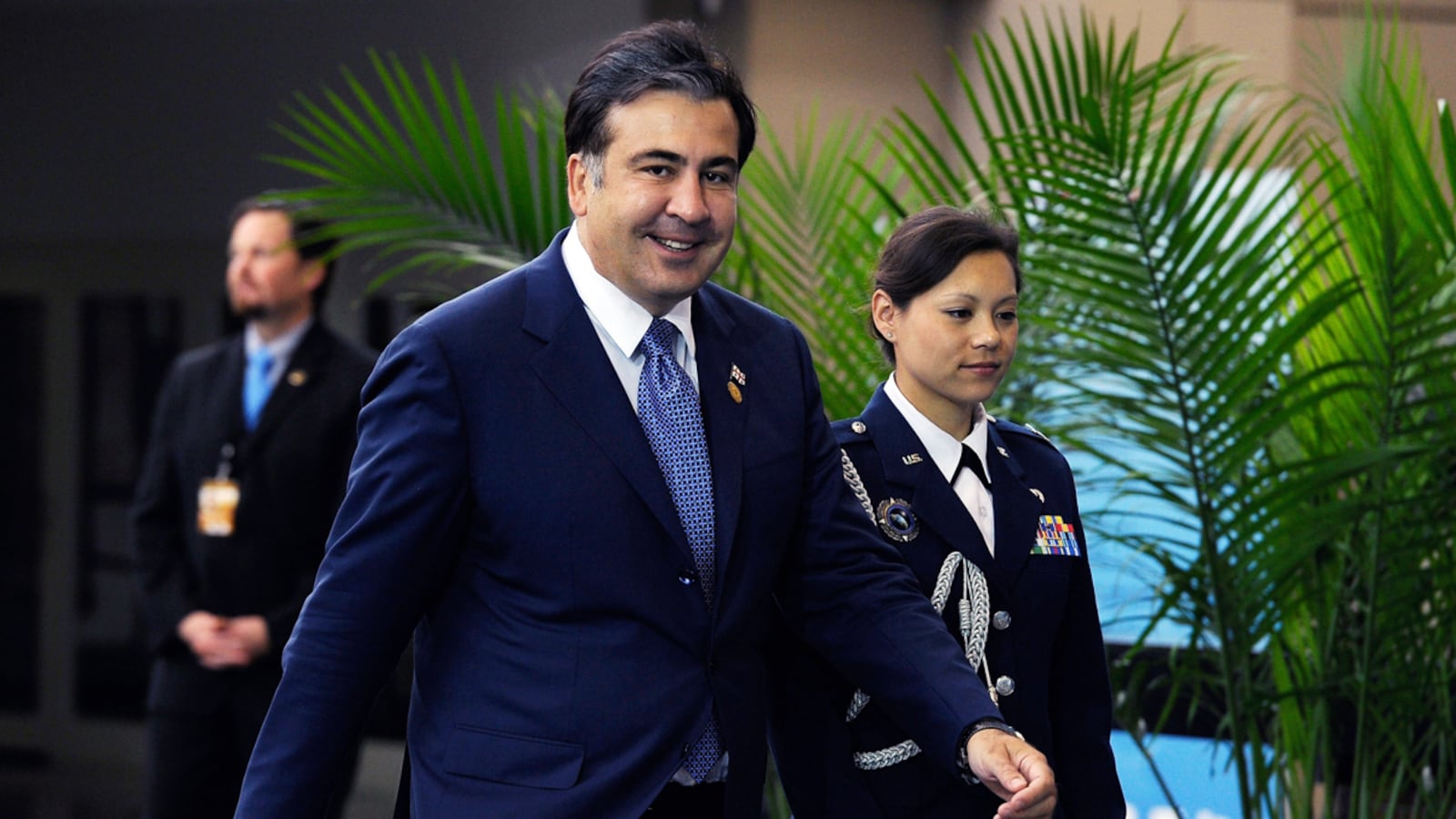Melik Kaylan’s article shows how a reporter can be swayed by the Saakashvili regime aimed at crushing opposition leader Bidzina Ivanishvili and the Georgian Dream movement. To quote President Mikheil Saakashvili’s aide Raphaël Glucksmann saying “we are bending over backwards to integrate Ivanishvili into the process” outrageously flies in the face of the facts. They are bending over backward to keep him out.
From start to finish, Kaylan’s article carries a message of “how could Bidzina Ivanishvili and the opposition dare upset a great reformer and builder like Saakashvili?” That despite a long, brutal crackdown on the opposition, a failing economy with high unemployment and a devastated agricultural sector, and a diabolical criminal justice system now exposed by prison torture videos.
Point by point, Kaylan, who according to the article usually “covers culture,” sides with the regime, saying Saakashvili “did his best to contain the damage” from the videos and repeatedly quoting authorities who suggest that the scenes were staged. The Georgian public won’t buy that, as exemplified in the massive protests.
On the government’s stripping Ivanishvili’s Georgian citizenship after he announced his candidacy, the article quotes authorities saying Ivanishvili “forced their hand by publicly announcing he had a French passport” and didn’t follow procedure. These are official excuses; Ivanishvili had no citizenship issues as long as he was allied with Saakashvili.
On the government’s seizure of Ivanishvili’s Cartu Bank over campaign financing, the article quotes officials saying they “merely suspended its operations temporarily until the oligarch paid a fine for a breach of Georgia’s strict election laws.” The truth is that the authorities seized the bank and lent millions away to sabotage it before returning control. The election laws are selectively enforced, primarily against the opposition. Through what the U.N. Human Rights Commission calls a “climate of fear,” the government has been doing everything it can to crush Ivanishvili and Georgian Dream, not to integrate him as Glucksmann contends.
Glucksmann’s contention that “the real danger comes from any strategies to bypass or negate the democratic process” should be pointed not at Ivanishvili but at Saakashvili, whose regime’s continuing attacks, arrests, and intimidation are doing just that.

And the repeated references to Ivanishvili as “an oligarch” seem aimed at discrediting a serious political opponent by quoting Saakashvili’s supporters who dub him a “Kremlin project.” Yes, he made his fortune primarily in Russia, yes, he seeks more cordial ties with Russia—as opposed to Saakashvili’s continued warmongering with Moscow that lost him 20 percent of Georgia’s territory. Ivanishvili is a Georgian patriot who has divested himself of his Russian holdings to make his homeland a better place.
Parroting another government line, the article raises the specter of a Russian intervention if postelection unrest flares. Ivanishvili has repeatedly called on his supporters to show restraint and to demonstrate their anger at the ballot box. The article claims “[i]t unsettles most Georgians that he refuses to speak ill of Vladimir Putin.” That may be a government contention, but it is wrong. Ivanishvili has indeed been critical of Putin.
The article raises repeatedly reported statements by some opposition candidates that are “bigoted and xenophobic.” Ivanishvili has firmly rejected those statements and supports tolerance and inclusiveness.
The article seeks to defend the Saakashvili government, saying it is “anything but a dictatorship” since the prison videos were allowed on a private channel linked to Ivanishvili. How does the article characterize a country with such a brutal prison system?
The conclusion paints the picture of Ivanishvili, “the oligarch,” who wants to keep the old ways of corruption, and Saakashvili who “may be the only leader in the region who fully delivered a Westernizing revolution.” That perception completely ignores the facts: that Saakashvili’s Rose Revolution has turned into a brutal autocracy full of corruption, and Ivanishvili is a dynamic businessman who wants to see real and sustainable economic change, real democracy, an independent judiciary, and a regional role for Georgia aimed at relaunching trade and avoiding another disastrous war.






